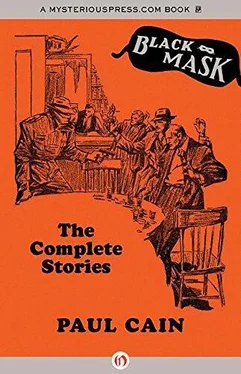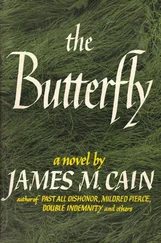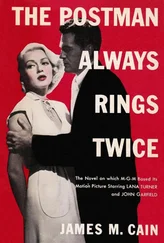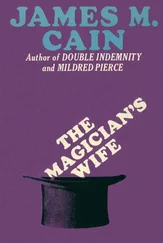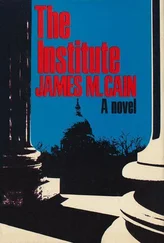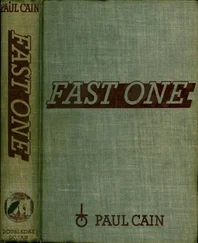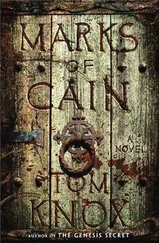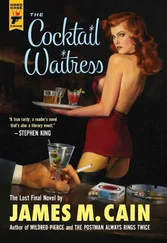Ornitz shrugged, mumbled something about the undependability of women. I paid my check and went over to the flat. I knocked several times but no one answered so I tried the door, pushed it open, yelled, “Hey! Is anybody home?” There was still no answer; I crossed the living room to the kitchen. Lina Ornitz was lying face down on the kitchen floor with the handle of an ice pick sticking out of the left side of her back, a little below the shoulder blade.
She was very dead. I called Nick Moore at the precinct station and called Ornitz and told him something had happened and that he’d better come home. Then I looked around.
The back door was unlocked, led to a rickety stair, an alleyway running to the street; there was a half-full flask of Chianti on the kitchen table, one stained glass; there were a dozen or so telephone numbers scrawled haphazardly in pencil on the wallpaper around the telephone. I made a list of all that were legible.
I’d just finished a swift but fairly neat check on the contents of most of the drawers and closets when Ornitz puffed in. I sat him down in the living room and broke the news as gently as I could. I was getting into my stride on who’d want to liquidate Lina, why she’d gone to England, and a few leading questions like that when Nick Moore wandered in with a plainclothesman and a cop.
I told Nick about coming to pay a social call and finding Lina, and turned Ornitz over to him. I figured his “Who done it?” technique was better than mine and I had a hunch Ornitz was just as dumb as he sounded, anyway — and just as innocent. He didn’t know what it was all about — any of it. He just sat with his mouth open and shook his head. I told Nick I’d call him later and checked out.
As I crossed Ninety-first Street diagonally toward Amsterdam Avenue a dark blue Buick coupé roared out from the curb, missed me by a hair. A slug ripped through my left coatsleeve and thudded into the side of a parked car. The blue coupé melted into traffic before I could spot the number.
A couple of men ran out of a delicatessen and stood on the curb arguing about whether one of them had heard a shot or not. I took off my coat and folded it and carried it over my torn shirtsleeve.
I dropped in on Jack Gordean at the Martinez on the way downtown. His was the second possibly warm name I’d found on the passenger lists; he’d come in from London on the twenty-seventh. He was a big-time gambler and the only thing that might tie him up with the Castell case was the fact that he was lousy with money and had a decided taste for shady, and profitable, investments. I thought maybe he’d branched out into emeralds but after about five minutes I decided he hadn’t. In this business you get so you can make a damned good guess about things like that after you talk to a guy.
Jack and I had a couple beakers of Scotch and then I went back to my hotel and called Lina’s numbers. The first one turned out to be a wholesale grocer and the second was Ornitz’s Aunt Sadie: they ran like that till I got to number eight. That one was familiar. I looked through my address book, found it — it was the branch office of the Burke-Reynolds Insurance Company. I’d jotted it down while I was waiting to see Mister Wister. I tried the rest of the numbers but none of them meant anything.
The Old Man called and I told him I had a fair lead. He said what makes you think so and I told him for one thing Lina Ornitz had been murdered the day after she got back from London, and for another thing the sleeve of my practically new suit had been ripped by a bullet and I’d need another.
He said: “That’s fine. Now we’re getting somewhere.”
When I finished talking to the Old Man the telephone girl called and said a man named Dekker had called while my line was busy, said he’d call again in a few minutes. I couldn’t place the name.
I was too tired. I took a shower and put on some clean clothes and went down to the bar, told the telephone girl to page me if Mister Dekker called again.
I was getting a running start on my Planter’s Punch when a man sat down on the next stool, smiled sidewise and said:
“I am Hans Dekker. I hope you will forgive my dropping in so informally.”
He was short and round. His head was too big for his body and his round face was like a cake with pink icing, his round China-blue eyes popped in an almost perpetual stare. He moved his fat hands nervously on the bar, said softly:
“I have reason to believe that you are interested in recovering some stolen emeralds.”
His voice was very low, velvety; his accent very precise.
I took a long drink. “We can help each other a great deal,” he went on.
“I know where they are. You, most certainly, will never find them without my help.”
I waited, but he stared at his hands and was silent.
“In the first place,” I said, “who are you, and in the second place, what makes you think I’m interested in stolen emeralds?”
He shrugged slightly, smiled slightly. “I have been so informed.” He took a thick green cigar out of his vest pocket, bit off the end and lighted it.
I said: “And what about the first place?”
“I am Hans Dekker. I am in the jewelry business.” His smile widened. “If you are wondering whether I have been in England lately, I have not. I came to this country from Amsterdam three years ago and I have not been back.”
I said: “Drink?”
He shook his head.
I looked at him for a minute and then said: “I don’t suppose you might, by some strange coincidence, know a woman named Lina Ornitz?”
His eyes were thoughtful, opaque. He shook his head slowly.
“Or drive a blue Buick coupé?” I went on.
“No.” He turned squarely toward me and his head moved slowly, negatively from side to side.
I said: “What’s your proposition?”
“What is yours?” He smiled again.
“You get a third of the reward money.” I told the bartender to whip me up another Planter’s Punch. “That will amount to about thirty-three thousand, three-hundred dollars.”
“That is not enough.”
I said: “I work for a living. That’s all I can offer. If you want more I’ll have to talk to my boss.”
He shrugged. “I want half.”
I sipped my fresh drink, took a chance. “Why don’t you get ’em by yourself? Then you’ll get the whole twenty thousand pounds.”
He shrugged again, very elaborately, slid off the stool.
I said, “Wait a minute,” and went to the phone and called the Old Man and told him about it. He said to offer him half and my right eye, as long as we got the stones. I didn’t tell him the Dutchman had fallen into my lap; it was just as well for him to think I’d ferreted it all out. He asked where he could meet us and I said I didn’t know yet, I’d call him back.
I went back to the bar and said: “You’ve made a deal.”
Dekker grinned so broadly it looked like his throat was cut and bellowed: “Good! Now we have a drink.”
We had two. I stuck to rum and he drank straight gin. I tried to get him to talk but he would only smile and shake his head and say: “Wait.”’
He insisted upon paying for his round. I walked outside with him and he said he’d meet me at the corner of Eighth Street and Tenth Avenue at a little after eleven and got into a cab. I went in to the desk and wrote down the number of the cab so I could get a line on him in case he didn’t show, then I looked up Wister’s home telephone number, called.
A woman answered, said: “Mister Wister is not in. This is Mrs Wister — may I take a message?” You could cut her English accent with a can opener.
I told her who I was and she asked me to wait a minute, then Wister came on, snapped:
“Hello, Mister Keenan — what can I do for you?”
Читать дальше
